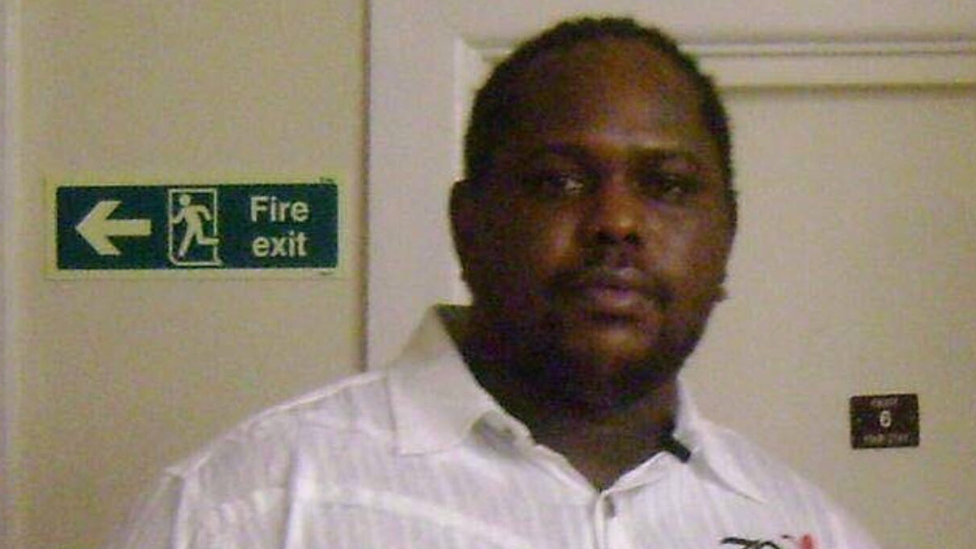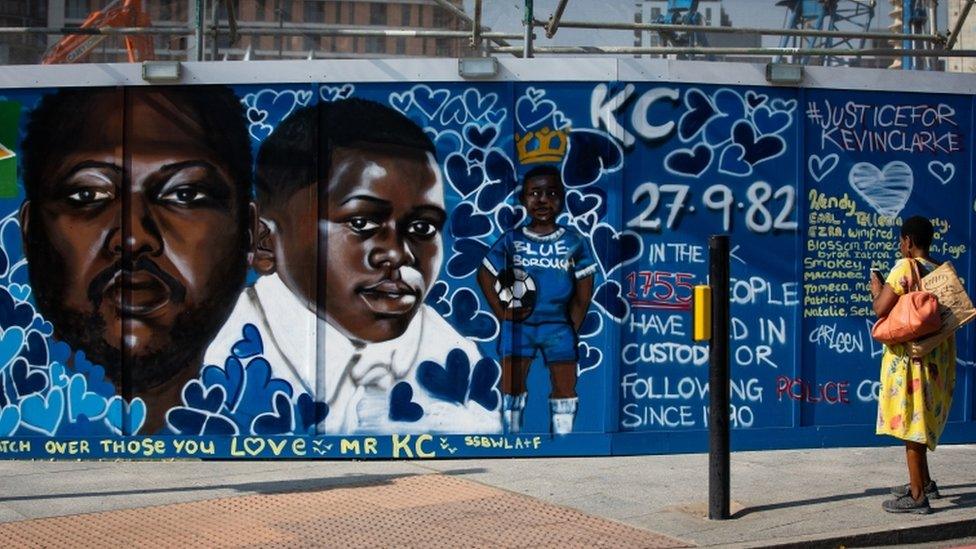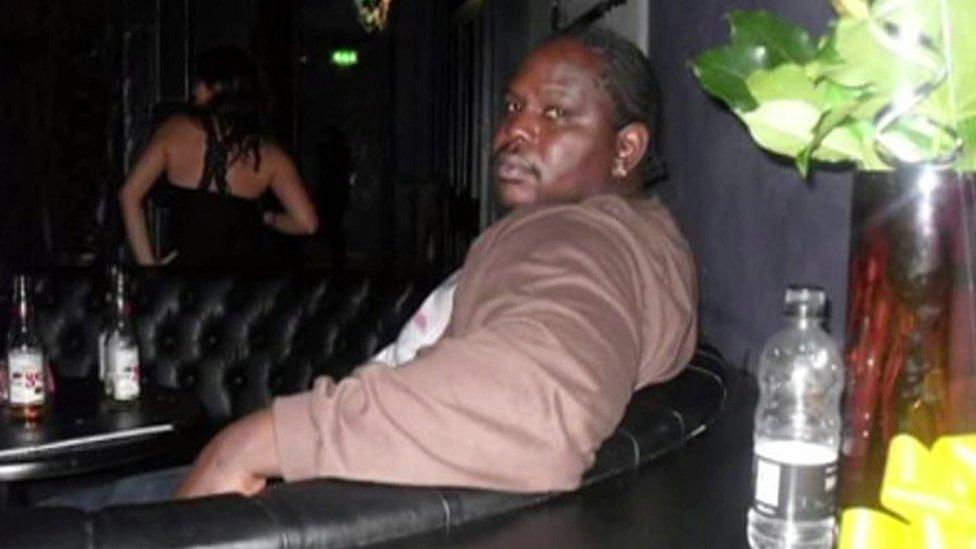Met Police restraint contributed to ill man's death
- Published
Kevin Clarke inquest: Bodycam footage of restraint released
The way in which police restrained a mentally ill man contributed to his death in custody, an inquest jury has found.
Kevin Clarke, who had schizophrenia, was surrounded and restrained by officers in a field in March 2018.
He told officers who handcuffed him twice that he "couldn't breathe".
Jurors at Southwark Coroner's Court deliberated for five days after hearing evidence from police officers and paramedics for over a month.
The inquest had heard that the 35-year-old told officers "I'm going to die" as he was put into handcuffs, due to his size, but was "ignored" and then lost consciousness as he was taken to an ambulance.
Returning a narrative conclusion, the jury concluded that the decision to use restraints on Mr Clarke was "inappropriate".
The jury said the use of restraints "probably more than minimally or trivially" contributed to his death.
"It is highly likely that at least one officer heard Mr Clarke say 'I can't breathe' on one of the occasions he repeated it," they added.
"Despite this, no action was taken other than one officer saying 'you've got to breathe, you've got to breathe, breathe, deep breaths'.
"Failure to remove restraints at this point was contrary to guidance and training."

Kevin Clarke was handcuffed twice when he collapsed
Mr Clarke's mother, Wendy Clarke, told the BBC sitting through the whole inquest was "painful, very painful to see a lack of urgency".
"Kevin should have been alive today but there was no urgency in his care," she said.
"All that he needed was to have been taken from where he was to a place of safety, and the ambulance service let him down, the police let him down and the home let him down."
His sister Tellecia Strachen said the inquest had been "distressing".
"We haven't been able to grieve probably because we're constantly reminded of what's happened," she said.
"They knew it was an emergency, there was no sense urgency and there were so many missed chances at every step, at every level, by all the interested parties."
Tellecia Strachen, Kevin Clarke's sister: "There must not be another George Floyd"
Mr Clarke had been living at the Jigsaw Project, a residential support service, for about two years up until his death in hospital.
He had been seen by officers earlier that day in Lewisham, but was not sectioned despite concerns from staff at Jigsaw.
Jurors found that the communications between police and staff at Mr Clarke's residential support service were insufficient.
But they said the insufficiency did not contribute to his death.
Bodyworn footage played in the inquest showed the moment Mr Clarke was restrained by officers and put in two sets of handcuffs.
Various clips showed officers leading Mr Clarke away from the field towards an ambulance - but he passed out and never regained consciousness.
The London Ambulance Service has already admitted its crew failed to conduct a "complete clinical assessment" of Mr Clarke on arrival.
This amounted to a "failure to provide basic medical care", which the jury said possibly contributed to his death.
The cause of his death was given as "acute behavioural disturbance, in a relapse of schizophrenia, leading to exhaustion and cardiac arrest, contributed to by restraint, struggle and being walked".

During the inquest a mural of Kevin Clarke was created outside Lewisham Police Station
Reacting to the jury's decision, the Met Police's Commander Bas Javid apologised to Mr Clarke's family "for the failings identified by the jury".
"The officers who attended that day found themselves in a very difficult situation dealing with a man undergoing a mental health crisis who clearly needed urgent medical care," he said.
He said they made a rapid assessment and within 90 seconds had called for an ambulance.
"The jury has made several observations about how those officers dealt with Mr Clarke," he added.
"Now we need to carefully consider those observations."
- Published21 September 2020

- Published14 September 2020
